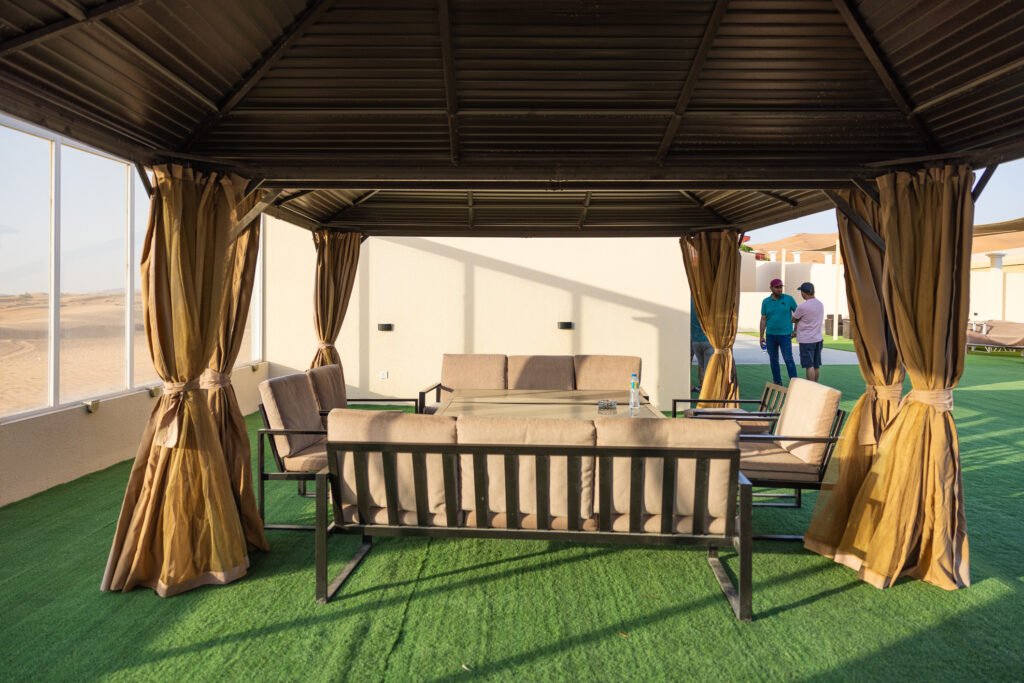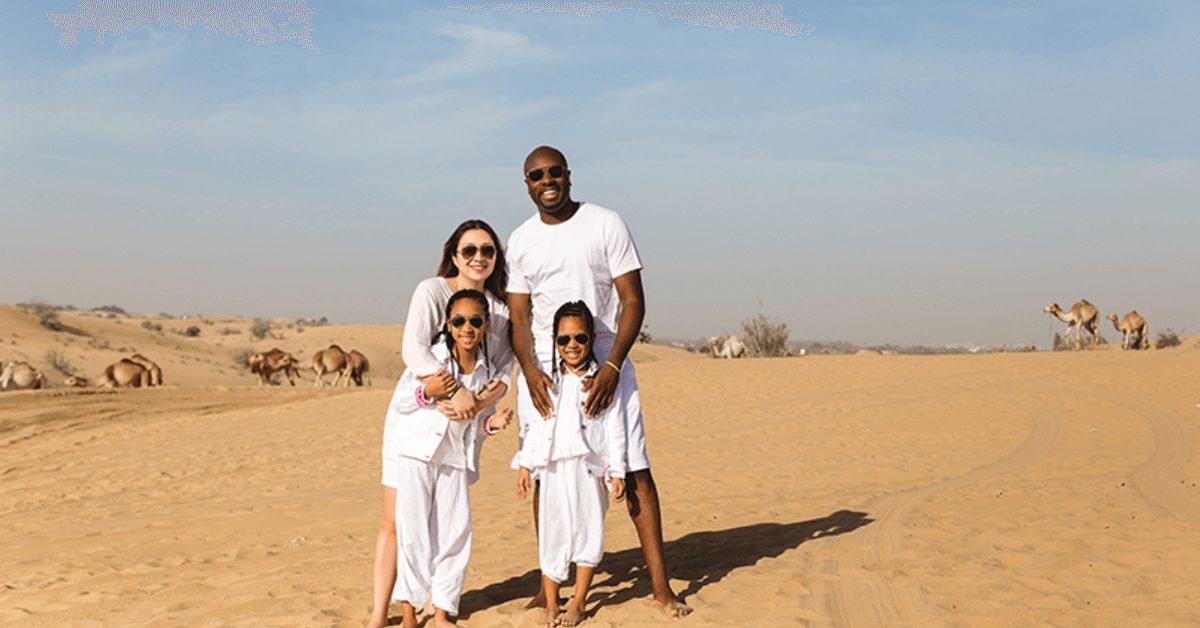Traveling to new destinations offers incredible opportunities to explore diverse cultures and immerse ourselves in different customs. Dubai, a vibrant city in the United Arab Emirates, is a popular tourist destination known for its luxurious experiences and rich cultural heritage. Among the many activities in Dubai, a desert safari stands out as an unforgettable adventure that allows visitors to discover the mesmerizing beauty of the desert landscapes while engaging with local customs and traditions. However, it’s essential to approach such experiences with cultural sensitivity and respect to ensure a positive interaction between tourists and the local community.

Understanding Dubai’s Cultural Landscape
To fully appreciate and respect local cultures and customs in Dubai, it is crucial to have a deeper understanding of the city’s cultural landscape. Dubai’s history, rooted in Bedouin heritage, has influenced its cultural identity.
Islam plays a significant role in Emirati culture, and the principles and practices of the Islamic faith should be respected. Dubai’s multicultural environment, where people from various nationalities and backgrounds coexist, adds an extra layer of diversity to the cultural fabric of the city.
Preparing for a Desert Safari in Dubai
Before embarking on a desert safari adventure, it is essential to research and understand the local customs and traditions. Familiarize yourself with the dos and don’ts, as well as the cultural norms specific to the region.
Dressing appropriately is a crucial aspect of cultural sensitivity, as modesty is highly valued in Emirati culture. Opt for loose, lightweight clothing that covers your shoulders and knees, and women may consider wearing a headscarf as a sign of respect. Additionally, learning a few basic Arabic phrases will go a long way in showing your interest and respect for the local language and culture.
Greeting and Interacting with Locals
One of the most effective ways to show respect for local cultures is through greetings and introductions. In Dubai, greetings are often warm and accompanied by a handshake. However, it’s essential to be mindful of gender norms and follow the lead of the locals.
In some cases, a simple nod or placing the right hand over the heart may be more appropriate. Maintaining appropriate gestures, body language, and eye contact during interactions is also crucial. Eye contact is generally appreciated but should be moderate, as prolonged eye contact may be seen as disrespectful in some contexts.
Understanding Bedouin Culture
To truly appreciate the desert safari experience in Dubai, it is essential to understand the influence of Bedouin culture. The Bedouin people, nomadic tribes with a rich heritage, have a deep connection to the desert.
Their customs and practices have been passed down through generations, and many of these traditions are still observed today. By learning about Bedouin customs, such as traditional hospitality, camel riding, and falconry, you can actively participate in and appreciate the cultural aspects of a desert safari.
Etiquette at Bedouin Camps
Bedouin camps offer a unique opportunity to engage with Emirati traditions and experience the hospitality of the local community. When visiting a Bedouin camp during a desert safari, it’s essential to adhere to proper behavior and conduct. Respectful interaction with Bedouin hosts and guides is paramount.
Remember to express gratitude and appreciation for their generosity and take part in traditional activities like henna painting, shisha smoking, or trying traditional Bedouin cuisine. Taking the time to learn about the significance of these activities and their cultural importance will enhance your understanding and respect for Bedouin culture.
Environmental Conservation and Sustainability
Responsible travel is not limited to cultural considerations but also includes environmental conservation and sustainability. The fragile desert ecosystem in Dubai requires our protection. When participating in a desert safari, be mindful of your environmental impact. Stick to designated paths, avoid littering, and dispose of waste responsibly.
Choose tour operators and camps that prioritize eco-friendly practices, such as reducing water consumption and using renewable energy sources. By supporting local initiatives focused on preserving the desert environment, you contribute to the long-term sustainability of this unique ecosystem.
Photography and Respect for Privacy
Capturing memories through photography is a significant part of any travel experience. However, it’s crucial to approach photography with respect for privacy and cultural sensitivities. Always ask for permission before taking photos of locals, especially if they are the main focus. Some people may decline, and it’s important to accept their wishes graciously.
Be mindful of cultural and religious sites where photography may be restricted or prohibited. When sharing images on social media, exercise discretion and avoid portraying individuals in a way that could be deemed disrespectful or offensive.
Cultural Sensitivity in Local Markets
Dubai’s vibrant markets, or souks, are a treasure trove of local crafts, spices, and traditional goods. When exploring these markets, it’s essential to be mindful of cultural norms and practices. Bargaining and negotiating prices is common in many souks, but it’s important to do so respectfully and in good faith. Recognize that haggling is part of the local culture, but also be considerate and avoid overly aggressive tactics. Remember that building rapport and engaging in friendly conversations can often lead to better deals and more positive experiences.
Conclusion
Respecting local cultures and customs during a desert safari in Dubai is essential for fostering positive interactions and preserving the rich heritage of the region. By understanding and appreciating Bedouin traditions, embracing Islamic practices, engaging with locals respectfully, and being environmentally conscious, you can ensure a meaningful and authentic experience. Remember, cultural sensitivity is an ongoing process of learning and adapting, and the effort you put into respecting local customs will enhance your journey and leave a lasting positive impact.
FAQs
What are the cultural customs and traditions of Dubai?
Dubai has a rich cultural heritage influenced by Bedouin traditions and Islamic customs. Some customs include showing respect to elders, practicing modesty in dress, and maintaining proper greetings and etiquette when interacting with locals.
Is it appropriate to haggle in Dubai’s markets?
Yes, haggling is a common practice in Dubai’s markets, also known as souks. However, it’s important to do so respectfully and in good faith. Remember to maintain a friendly and polite demeanor while negotiating prices.
How can I dress modestly for a desert safari in Dubai?
To dress modestly for a desert safari, opt for loose, lightweight clothing that covers your shoulders and knees. Women may consider wearing a headscarf as a sign of respect. It’s essential to respect local customs and adhere to the guidelines provided by your tour operator or hosts.
What are some common Arabic phrases I should know?
Learning a few basic Arabic phrases can enhance your cultural experience and show respect for the local language. Some common phrases include “Salam alaykum” (peace be upon you), “Marhaba” (hello), “Min flak” (please), and “Shukran” (thank you).
Can I visit mosques in Dubai as a non-Muslim?
Yes, many mosques in Dubai welcome non-Muslim visitors. However, it’s important to dress modestly, remove your shoes before entering, and be respectful of ongoing prayers or religious rituals. Some mosques may have specific visiting hours or areas, so it’s advisable to check in advance.

